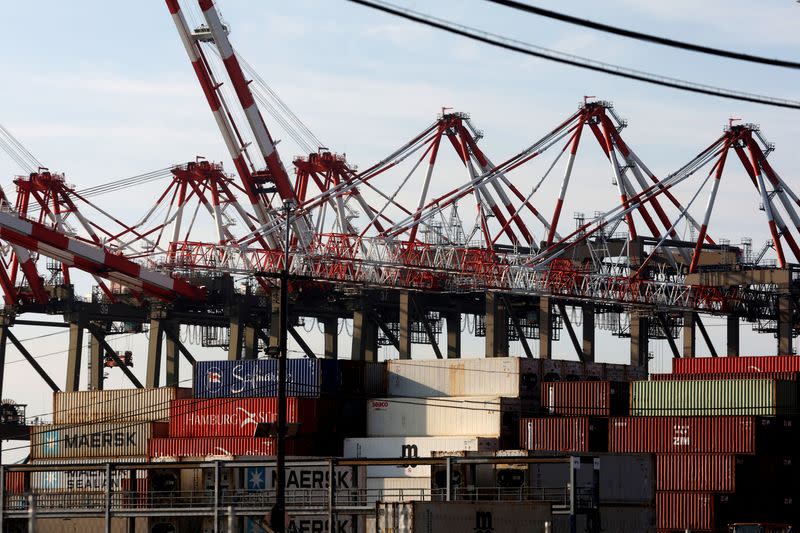Global supply chain pressures easing, New York Fed index shows

By Michael S. Derby
(Reuters) -The resolution of a U.S. port strike is likely to keep global supply chain pressures on a calm footing, allowing for a continued slowdown in inflation, an index tracked by the New York Federal Reserve showed on Friday.
The regional Fed bank's global supply chain pressure index, which measures how readings deviate from historical averages, eased to a reading of 0.13 in September. That ended an upward trend which saw the index move from -0.96 in April to 0.2 in August.
Global supply chain pressures have hovered right around normal or less than normal since early 2023, and their relative softness has played a key role in an ebbing of inflation that allowed the Fed to kick off its interest rate-cutting cycle last month. Supply chain disruptions during the onset of the COVID-19 pandemic and its early stage played a key role in driving U.S. inflation to 40-year highs in 2022.
Progress in lowering inflation pressures had been threatened by the now-suspended port strike on the U.S. East Coast and Gulf Coast.
Speaking on Friday after the U.S. government reported that job growth last month surged, Chicago Fed President Austan Goolsbee told Bloomberg Television that "you really couldn't ask realistically for a better report for the economy, coupled with finding out that the port strike is not going to be an extended matter ... those are two pieces of very good news for the economy."
There had been fears in financial markets that an extended strike could reignite inflation by disrupting trade, which in turn could raise doubts about the Fed's ability to continue on the rate-cut path that it's policymakers have outlined.
The deal struck between the alliance of port operators and the union representing thousands of dockworkers late on Thursday removes a risk to the economy and eases the threat of "a potential near-term resurgence in supply chain disruptions and inflation," Joseph Brusuelas, chief economist at RSM US LLP, said in a note to clients.
The U.S. economy, however, is not fully out of the woods because of the tentative nature of the agreement, which calls for the two sides to fully hash out the details of a new contract by Jan. 15, 2025.
That deadline "threatens to exacerbate supply chain bottlenecks as it coincides with critical shipping cycles, including replenishment of inventories post-holiday, spring season product positioning and preparations for the Chinese New Year," said John Donigian, senior director of supply chain strategy at Moody's.
"If an agreement isn't reached by January, we could see a repeat of delays and cost surges, impacting consumer prices and market stability," he added.
(Reporting by Michael S. Derby and Ann Saphir; Editing by Andrea Ricci and Paul Simao)

 Yahoo Finance
Yahoo Finance 